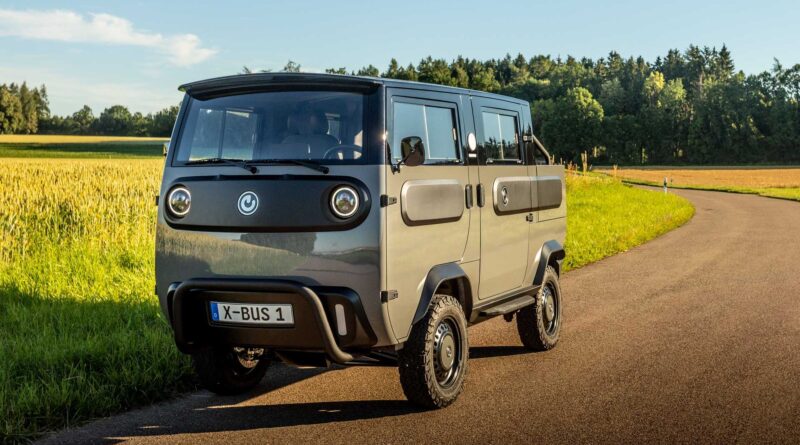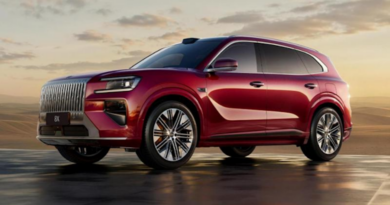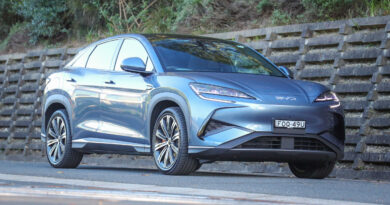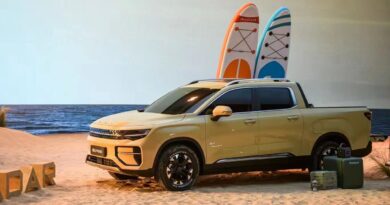German ElectricBrands reveals cutie XBus
With a cuteness factor to rival the original Volkswagen Kombi, German startup ElectricBrands has revealed a working prototype of its electric XBus.
Three years in development, we reported on the multi-purpose EV last year when it had the rather juvenile eBussy name.
Now called XBus, this 3.6m-long vehicle is intriguing for its modular and interchangeable bodies. Ten variations are promised, including convertible, off-roader, box body, mini tipper truck, station wagon, pick-up, van or camping bus.
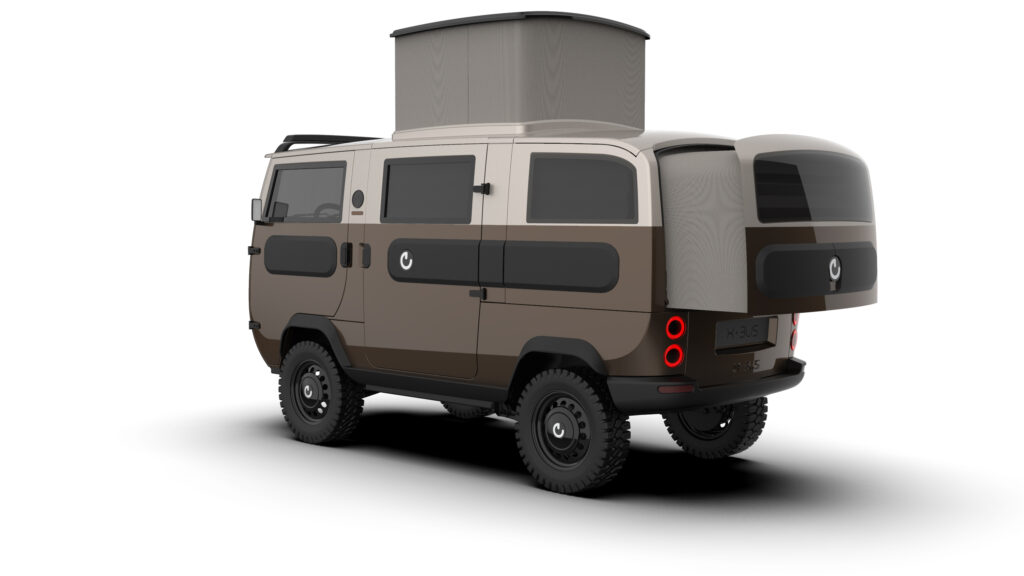
A city-orientated or off-road specific chassis can be optioned by the buyer too, while solar panels – generating up to 800 watts of electricity per hour – are fitted as standard to the roof.
All XBus models are all-wheel-drive and weigh from 450kg, although that’s without its battery weight or the final body type you choose, which will obviously push those numbers higher. Even so, the XBus promises to have a payload up to 1000kg. A proper one-tonner!
Quadricycle classed
Under Europe’s vehicle classification system the XBus is deemed a Heavy quadricycle – basically a four-wheel microcar. Hence the 450kg unladen mass before batteries – that helps it qualify for this class – or it can be up to 600kg if it’s intended for carrying goods. Crash test requirement are also far more lenient.
It’s not a complete tiddler though. At 3.6-metres long, the XBus is the same length as a Fiat 500.
There’s an integrated wheel hub motor for each wheel, with a rather lowly performance of 15kW – that, again, the highest allowed to qualify as a Heavy quadricycle.
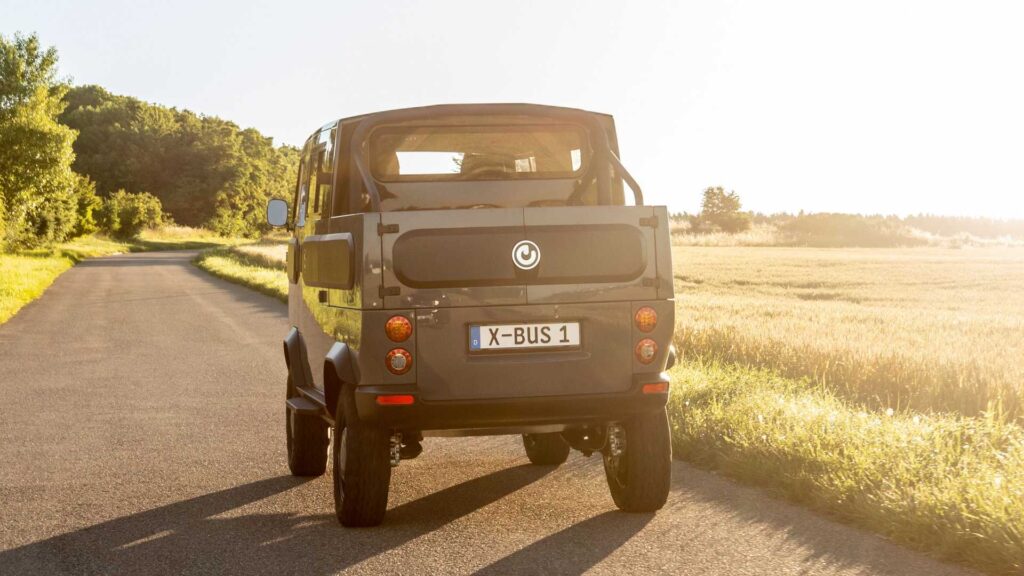
Regardless, ElectricBrands claims the top speed is up to 100km/h. It says there’s some 1000Nm on tap due to each motor having a peak power of up to 280Nm. There’s no gearbox or differential, so these individual motor outputs can be applied without loss of power.
Solar boosts range
Eight 1.25 kWh batteries are standard fitment for a total of 10kWh and the promise of a 200km range in city driving mode, or a more believable 140km in “mix” mode. This will be backed up by your solar roof, but how much extra range you’ll get depends on the weather.
You can pay for extra battery modules up to 30kWh total, with a range of up to 600km promised as a result, or 800km if you add the potential for an extra 200km from a full day of ideal solar panel charging.
Charging times will vary depending on how many battery modules you go for, but ElectricBrands says fast charging to 80 percent would take just 30 minutes.
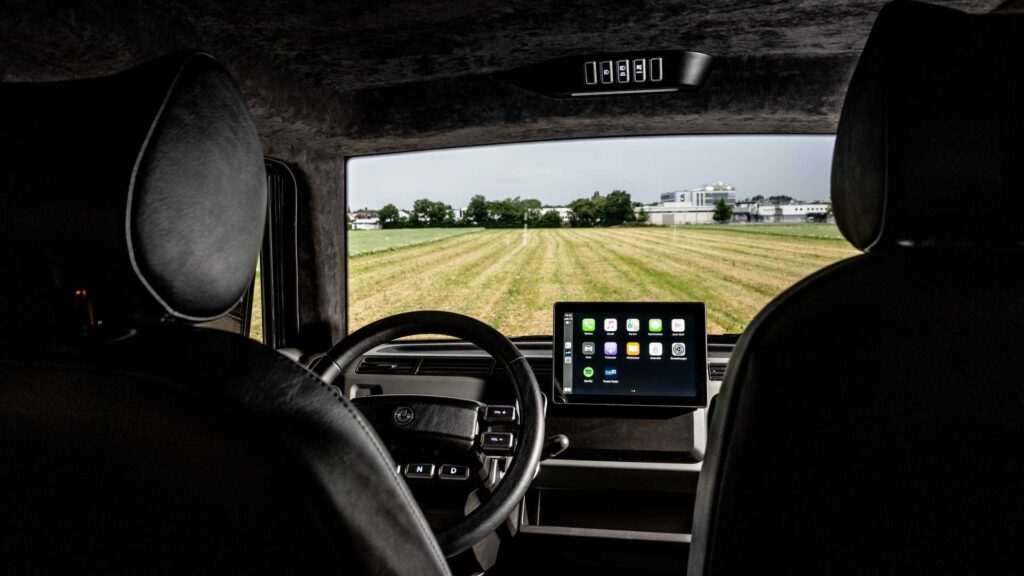
Production is due to start in Germany in December 2021. First deliveries are promised in 2022, and the brand’s website has an online initial configurator where you make your body and chassis selections. It asks for a refundable deposit of 10 percent of the expected overall cost.
ElectricBrands says three months before production of your XBus begins, you receive a link for final configuration and order.
Encouragingly, ElectricBrands lists 29 European countries where you can order an XBus, including the UK’s right-hand drive market. It says it’s working on offering the vehicle in different countries in future as well, including production for outside Europe by the middle of 2022.
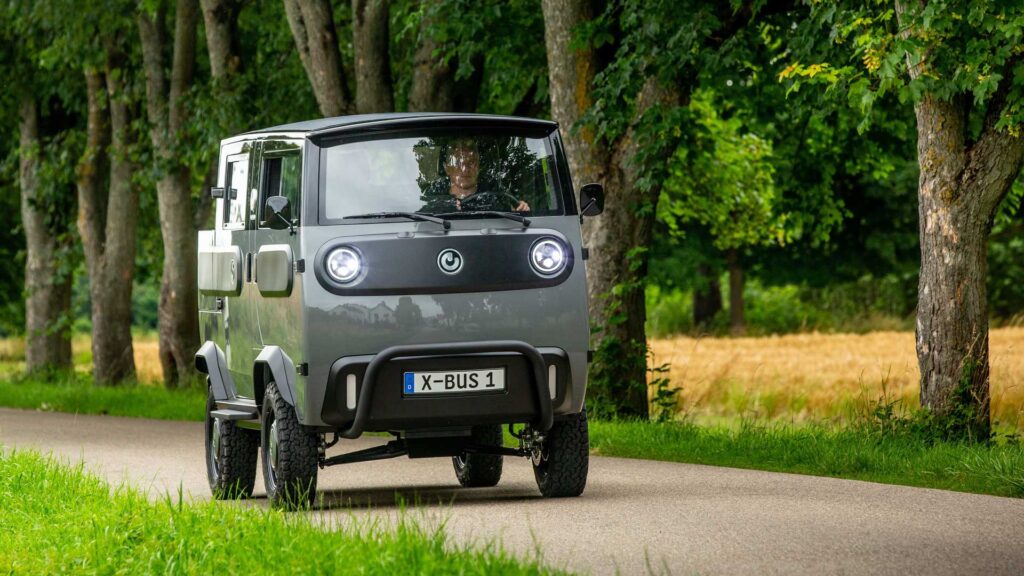
Trying the online configurator, a basic ‘Freedom’ model with open tray back costs 18,222 Euros ($28,900). A Kombi-esque Bus body sees this jump to 22,437 Euros ($35,600), dual cab pickup (tiny tub though) is 21,217 Euros ($33,600) and Camper van the priciest at 30,424 Euros ($48,200). This latter version boasts a pop top rising to a height of 2.2 metres, sleeping space for two, a kitchen, fridge, tv, fresh water tank and hotplate.
Choosing an off-road chassis variant – which does look exceptionally cool at 4-inches higher – adds another 2200 Euros ($3500).
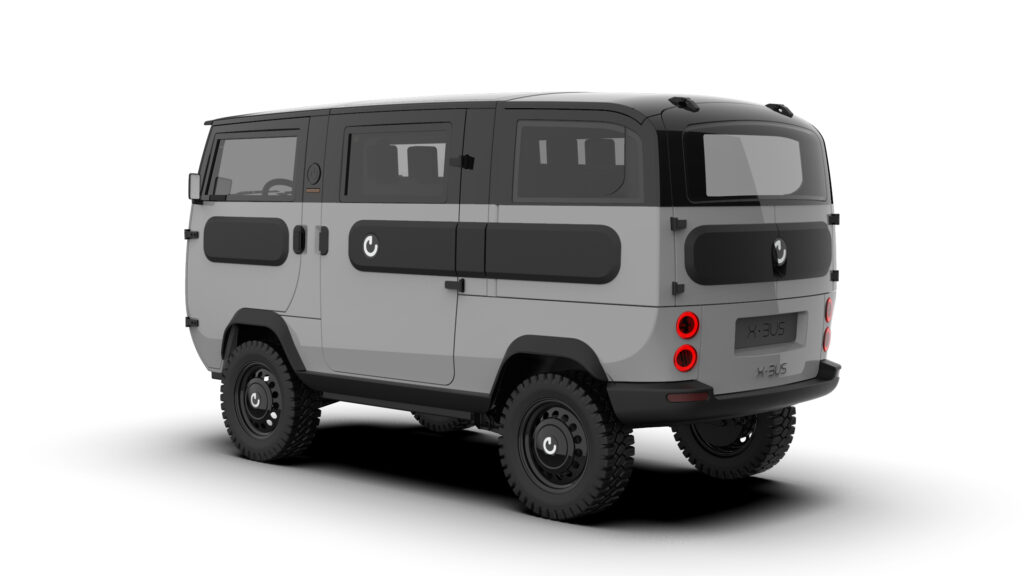
Depending on the body style chosen, there are either two or four seats.
Endless choices
Body colour choices are white, light grey, dark grey or lime green; those panels between the headlights and on the doors can be black or aluminium; 16-inch steel wheels are standard or alloys add 625 Euros ($1000), while you can dress the cabin up with fancier upholstery for an extra 1210 Euros ($1920).
The interior is certainly basic in a utilitarian way, with rather crude steering wheel buttons. Standard equipment includes a 10.2-inch colour display in the dashboard with Apple CarPlay/Android Auto, keyless entry and start, a charge cable for home charging and that solar roof.
Options include air conditioning, a trailer hitch, bike carrier and even digital side mirrors.
Future plans include an XL XBus variant for 2023 – obviously a larger version – but for now the startup is seeking investors as well as early deposits for the cashflow required to get production moving apace.
While these aspects always set alarm bells ringing, it’s hard not to want this very cool, cute and versatile little XBus to have every success.

